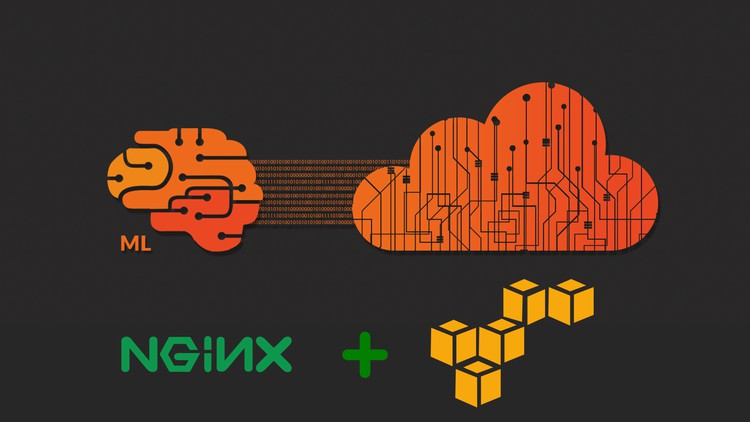Deployment of Machine Learning Models in Production | Python
Deployment of Machine Learning Models in Production | Python
Deploy ML Model with BERT, DistilBERT, FastText NLP Models in Production with Flask, uWSGI, and NGINX at AWS EC2
FREE For Limited Enrolls
https://www.udemy.com/course/nlp-with-bert-in-python/?couponCode=A19BA465678D70686C7C
Welcome to "Deploy ML Model with BERT, DistilBERT, FastText NLP Models in Production with Flask, uWSGI, and NGINX at AWS EC2"! In this course, you will learn how to deploy natural language processing (NLP) models using state-of-the-art techniques such as BERT and DistilBERT, as well as FastText, in a production environment.
You will learn how to use Flask, uWSGI, and NGINX to create a web application that serves your machine-learning models. You will also learn how to deploy your application on the AWS EC2 platform, allowing you to easily scale your application as needed.
Throughout the course, you will gain hands-on experience in setting up and configuring an end-to-end machine-learning production pipeline. You will learn how to optimize and fine-tune your NLP models for production use, and how to handle scaling and performance issues.
By the end of this course, you will have the skills and knowledge needed to deploy your own NLP models in a production environment using the latest techniques and technologies. Whether you're a data scientist, machine learning engineer, or developer, this course will provide you with the tools and skills you need to take your machine learning projects to the next level.
So, don't wait any longer and enroll today to learn how to deploy ML Model with BERT, DistilBERT, and FastText NLP Models in Production with Flask, uWSGI, and NGINX at AWS EC2!
This course is suitable for the following individuals
Data scientists who want to learn how to deploy their machine learning models in a production environment.
Machine learning engineers who want to gain hands-on experience in setting up and configuring an end-to-end machine learning production pipeline.
Developers who are interested in using technologies such as NGINX, FLASK, uwsgi, fasttext, TensorFlow, and ktrain to deploy machine learning models in production.
Individuals who want to learn how to optimize and fine-tune machine learning models for production use.
Professionals who want to learn how to handle scaling and performance issues when deploying machine learning models in production.
anyone who wants to make a career in machine learning and wants to learn about production deployment.
anyone who wants to learn about the end-to-end pipeline of machine learning models from training to deployment.
anyone who wants to learn about the best practices and techniques for deploying machine learning models in a production environment.
What you will learn in this course
I will learn how to deploy machine learning models using NGINX as a web server, FLASK as a web framework, and uwsgi as a bridge between the two.
I will learn how to use fasttext for natural language processing tasks in production and integrate it with TensorFlow for more advanced machine learning models.
I will learn how to use ktrain, a library built on top of TensorFlow, to easily train and deploy models in a production environment.
I will gain hands-on experience in setting up and configuring an end-to-end machine-learning production pipeline using the aforementioned technologies.
I will learn how to optimize and fine-tune machine learning models for production use, and how to handle scaling and performance issues.
All these things will be done on Google Colab which means it doesn't matter what processor and computer you have. It is super easy to use and plus point is that you have Free GPU to use in your notebook.
Who this course is for:
- Machine learning engineers who want to gain hands-on experience in setting up and configuring an end-to-end machine learning production pipeline.
- Data Science enthusiastic to build end-to-end NLP Application
- Data scientists who want to learn how to deploy their machine learning models in a production environment.
- Developers who are interested in using technologies such as AWS, NGINX, FLASK, uwsgi, fasttext, TensorFlow, and ktrain to deploy machine learning models in production.
- Individuals who want to learn how to optimize and fine-tune machine learning models for production use.
- Professionals who want to learn how to handle scaling and performance issues when deploying machine learning models in production.
- anyone who wants to make a career in machine learning and want to learn about the production deployment.
- anyone who wants to learn about the end-to-end pipeline of machine learning models from training to deployment.
- anyone who wants to learn about the best practices and techniques for deploying machine learning models in a production environment.

Comments
Post a Comment